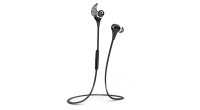When I mention that Scott and I are taking hypnobirthing classes, I’m always, without fail, met with looks of puzzlement and wonder. And if you ask me, it’s a fair reaction.
It’s not a widely known birthing technique. Plus, it’s predominately used in facilitating a natural or unmedicated birthing experience, and so right there you’re pretty much assured that even if someone you knew was using it, it’s a little likely they’re not going to share, lest they be marginalized for taking an alternate route on the way to birthing their kid.
Important for me to point out now: I don’t have any agenda or politics where labor and birth are concerned. I know a very, very small handful of women who gave birth to their kids without the use of drugs, and they don’t talk about it much. I really haven’t had the occasion to speak with many women who have given birth without drugs.
The majority of birthing stories I have been privy to are from those women who have birthed in a more mainstream fashion, though I’m loathe to try and put a descriptor on how they’ve birthed, lest it be misconstrued as judgment in regards to the path these ladies and their partners chose for their families.
I don’t have an agenda here. I really, really don’t. I just know that about two years ago, I watched The Business of Being Born and it changed everything for me. It wasn’t strong and sudden, but I knew after I watched it that there was little chance I wouldn’t actively explore my options if we ever became pregnant.
I don’t think that unmedicated birth is a machismo thing, and I balk at the very notion, though it’s one that’s bandied about when it comes to birthing without drugs. I am anything but full of machismo. I don’t feel the need to prove myself and my mettle on a regular basis, so for me deciding to have an unmedicated birth had nothing to do with that part of my ego.
Primarily, it spoke to me on a very personal level, and it had nothing to do with me as much as it had to do with my own mother.
—
Long-time readers know that I had a difficult relationship with my mom when she was alive. She’s been dead for longer than I knew her now, so it’s with that passage of time that I can see how typical some elements of our relationship were for that of a 40-year-old woman and her 13-year-old daughter. Other elements to that relationship were not so typical, and I’ve never felt comfortable sharing those things with the world at large. Suffice it to say, you combine trying times with an adolescent girl whose relationship with her mom was never very close, and you wind up with a woman who will spend years and years trying to come to peace with it all.
I heard the stories where my mother, upon my birth, didn’t want to have much to do with me. Nowadays, I think, we’d aggressively investigate as to whether she was suffering from postpartum depression, but back in the 1970s, I don’t know that it was talked about much. Plus, you would have had to have known my mom to have not been particularly surprised that she wasn’t affectionate toward her new baby. My dad was left to bear the brunt of most of my upkeep, and though he did it joyfully, of course, it meant that I really only bonded with one parent.
Before I go any further, I want to put it out there that shit happens. It just does. People only do the best they can with what they’ve got, and my mother was no different. I don’t harbor any resentment toward her (anymore) and Cathy (my mom) was who she was, end of story. You can’t live your life resenting people for not being who God intended them to be.
All that aside, I’ve always known – if not on a conscious level, then certainly on a visceral level – that I missed out somewhere. The sort of relationships that my friends had/have with their moms was (and remains to this day) so foreign to me that I can barely get my brain around the concept. I’m not saying that my mom’s reaction to having a baby is a direct result of this, but I know that her not actively engaging with me, and parenting me, left a mark. And then, well?
And then she died in a car accident when I was a little girl, long before I knew what to do about that mark, let alone what she could have done to fix it.
If I have panicked about anything about having a daughter, it’s that I never felt as though I really knew what a relationship between a mother and a daughter looked like if it wasn’t plagued with sadness and anger and despair. How in God’s name could I nurture a girl if my own mom never nurtured me?
I’m willing to bet good money there are plenty of you reading me who experienced something similar – after all, you don’t need to have lost your mom as a little girl to have had a less-than-ideal relationship with yours, and I know that. And there are a great deal of women who by virtue of that less-than-ideal relationship are armed with a sort of confidence of which I’m in awe.
But for me, once I read more about birthing and labor and what that could be like for me, should that be the path that I take, the more I understood that this path would help bring me the sort of confidence that I lacked. I knew, and am now more convinced of it today, that in absence of a blueprint to motherhood, this path would help me create my own.
—
I don’t have any particular expectations about labor and birthing and parenthood, and I don’t expect it to solve any of my problems with my mother. I’ve already had years of therapy and conquered that mountain – I can’t change a single thing that was. I can choose how my experience shapes my future.
I refuse to believe I can’t mother a child. I refuse to believe I can’t nurture one. I can’t make better my relationship with my mother through my own daughter, but I can decide that if I die at 40, she won’t have the same experiences that I did.
—
And so I’m opting to give birth to our daughter unmedicated. I don’t necessarily believe that I would be dooming my relationship with my daughter if I chose a different path – far from it – but by heeding such a strong, visceral calling like this one, I feel like I’m finally experiencing at least one form of motherhood that I missed out on.
I know this way is not for everyone. I’ve also been made aware of the pedestrian, uninformed snickers and sneers that have been made behind our backs about our choice to use a doula, to use hypnobirthing, by those in our lives who are felled insecure by these choices. Choices that don’t validate their own.
I don’t expect people in our lives to agree with us or throw us a parade, but maybe just not belittle us to complete strangers, especially without ever once engaging us on the topic or asking us a question.
We’re not choosing this path because we think it’s superior to another. One of the reasons we chose the doula that we did was that she has no interest in supporting her own agenda, but is only there to support ours. And if that ends up including an epidural or a C-section, she’s there to support us and guide us through it and not make us feel guilty for taking another route. We couldn’t have worked with her otherwise.
This is just the path for us, and the path that makes sense for our family. This choice is the most personal choice I’ve made in my life, so I can’t begin to think where I’d say that in light of “X” option, I am instead choosing “Y.” It wasn’t a choice made after comparison as much as it was a calling, if that makes any sense, and I have to believe that most parents feel the same way about the choices they’re making for their families.
Who the fuck would I be to challenge them otherwise, knowing what I know now?
—
I haven’t felt any closer to my mom throughout this process. I didn’t necessarily expect to. What has happened, however, is a stronger sense of myself and what it will mean for me to give birth to a daughter. I am gaining a peace and a confidence that I certainly didn’t posses three months ago. For this feeling, I am grateful for every step.















